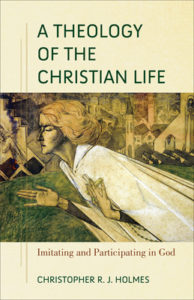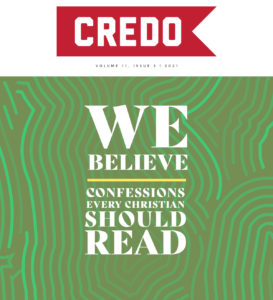Over the last few years, there has been a healthy and needed retrieval of theology proper, chronological humility, and theological reading of Holy Scripture. Like my toddler daughter who gets physically excited when dinner is placed on the table, I began to taste and see the bountiful feast that is God himself in the Scriptures and delivered once for all through the saints of old. In God’s providence, I began reading those great historical Christians like Hilary, Augustine, Aquinas, Van Mastricht, and so many others. Of course, there is an intrinsic joy that is reading old literature, but these provided fresh (at least to me) conceptions of theology, Holy Scripture, and contemplation of the Holy Trinity. Take Hilary’s On the Trinity for example. There is both a richness in theological content and method, but the posture and disposition are also striking. At several points in the work, Hilary pauses to pray. He recognizes that who he is writing about is no mere mortal. The incomprehensible Holy Trinity has made himself known through Word and Spirit, and now calls us his sons and daughters. This great mystery should cause us to be slow to speak, persistent in prayer, and devoted to worship.With Holy Scripture as the center and teacher, we become preoccupied with God by loving God through imitation (Eph. 5:1) and participation (2 Pet. 1:4). Click To Tweet
In his new book, A Theology of the Christian Life: Imitating and Participating in God, Christopher R. J. Holmes fleshes these ideas out further. Writing to bring together the theoretical and practical, Holmes offers “a scripturally charged account of some of God’s essential names with a view to imitation of and participation in God.” His concern then is to answer these questions: “What do they [essential names of God] say about God’s being, and what kind of life do they encourage?” (xii) Thus, with Holy Scripture as the center and teacher, we become preoccupied with God by loving God through imitation (Eph. 5:1) and participation (2 Pet. 1:4).
Theology of the Christian Life: Imitating and Participating in God, Christopher R. J. Holmes fleshes these ideas out further. Writing to bring together the theoretical and practical, Holmes offers “a scripturally charged account of some of God’s essential names with a view to imitation of and participation in God.” His concern then is to answer these questions: “What do they [essential names of God] say about God’s being, and what kind of life do they encourage?” (xii) Thus, with Holy Scripture as the center and teacher, we become preoccupied with God by loving God through imitation (Eph. 5:1) and participation (2 Pet. 1:4).
The book is structured in two parts. The first constructs God’s essential names and how creatures are to imitate these. Holmes works through God’s existence, manner of existence, perfection, infinity, and immutability. Theology proper is the firm root for the Christian for these essential names determine and shape the Christian life (xvi). The second part demonstrates the import of how God’s essential names inform the hypostatic union and the Christian life. To close the book, Holmes shows the ecclesial sphere that this imitation and participation is located as individuals speak of the one Creator God Most High.
Essential Names
The Psalmist’s words ring loud: “For with you is the fountain of life; in your light do we see light.” The Great I AM is existence itself, purely actual. The fool says in his heart that there is no god, yet God is life itself. God is not like the creature who has life from another and is subject to passions and change. God’s life and manner of life inform our relation to him as creatures. Thus, the life of the wise acknowledges the life and existence of God as creator and sustainer of life. Creatures participate in that life that is proper to God. True creaturely life, then, is imitative: “Our life accordingly takes on a heavenly hue, given over to pure praise insofar as we live in being itself, which is God.” (30)
Throughout the book, Holmes’ is very careful to retain our creatureliness and the divine grace of becoming virtuous. Creatures are not divine, nor do we become divine. We retain our creatureliness, yet insofar as we participate in God through imitation, we truly exist. This is made clearer in the chapters on perfection and infinity. Through Christ Jesus and by the Holy Spirit, we feed on the Scriptures learning to have affections for none but God, who is life itself. Thus, as we remain composite, God fills us in union to Christ through virtue, friendship, and adoption.
The perfection of God teaches that the true Christian life “involves death to the ways of the world. The doctrine of God is immensely shortchanged if it gives the impression that you can simply describe the names without attending to their moral, spiritual, and ethical import.” (45) In other words, contemplating the Holy Trinity is the pious effort of becoming that which is contemplated. Prayer, then, is the mode by which we love God and our love is enflamed by God who is love.For the more that we taste and see that the Lord is good, we lack no good thing and our choices are that which we desire, God himself. Click To Tweet
The chapters on infinity and immutability have an eschatological underpinning; a longing for Christ’s return to rid this world of sin and death as we see him face to face. If God will be “all in all” in the new creation, how do we participate in divine infinity through imitation? The control remains in our contemplation: God is not contained by what he fills, and we imitate in a relative sense. If we are to imitate God, we must shed the old man and put on the new. And this new man is made in the image of his creator—Christ Jesus. Thus, the reason why Paul writes to the Colossians: “And put on love, which binds everything in perfect harmony.” God is love, infinitely so, and binds us in his perfection where we restlessly move toward God.[1]
This movement toward God will have no end as the infinity of God grounds the beatific vision, our heavenly bliss (69). “When we consider the blessed life, its visas are unending and infinite. Because God’s Spirit gives us a share in God’s infinity, we shall never tire of that infinity. The Spirit will continue to bestow blessedness and happiness, inexhaustibly so. Accordingly, the more we receive God’s infinite goodness and holiness, ‘the more the desire for it in us should be expanded and extended.’ (Origen, FP, 1.3.8) The expansion of desire in us is the work of infinity…Our blessedness will know no end, for it is an ever-increasing blessedness in relation to the one whose blessedness is unbounded.” (69)
Retaining the creator/creature distinction, Holmes’ clarifies our sharing in the immutable God: “When we seek after the living God, we receive these names (infinity, immutability, and eternity). We receive those names as creatures that possess permanence of being and choice. However, we must again remember that those belong to us accidentally. Immutability is proper to God, whereas it is ours only by participation, and participation is ours via imitation.” (86-87)
In other words, we participate in divine immutability (that which lacks change and choice) morally. For the more that we taste and see that the Lord is good, we lack no good thing and our choices are that which we desire, God himself. “God’s inability to change is the antecedent for our willing a good life…when we are subject to God, in whom there is ‘no variation or shadow due to change’, we are happy.” (93)
Hypostatic Union, Virtue, and the Church
God’s essential names inform our Christology which shapes the Christian life. In the last three chapters, Holmes demonstrates further the Christian life of imitating God by imitating our elder brother Jesus Christ. As noted in the chapter on infinity, “glorified humanity is perfectly receptive of God…we as creatures will be utterly activated by the being of God.” In the life to come, where sin and death are definitively no longer remain in the Christian, we have eternal bliss through sight and plunge the infinite depths of the Holy Trinity forevermore. However, in this present life, “the humanity of Jesus provides the pattern for heaven. Jesus does not cease to be truly human because the Word activates him.” (110) It’s the mysterious hypostatic union that shapes the Christian life of imitation. We live like Jesus, the last Adam and elder brother, in faithfulness and trust in God.
The Christian life is composed of a multitude of gifts, but three primary gifts are Word, Spirit, and Church. These are the gifts by which the Christian imitates and participates in God. Through the light of the Spirit, we see the light of the Word. In union with the Word, the Spirit also unites us to a new people, a royal priesthood. Participation in God is accomplished through imitation in the name of the Lord Jesus Christ with his body, temple, and family.As the principle of all things, God works in us what he is timelessly and in perfection. Click To Tweet
Thus, the path toward contemplation of God is by the virtue that God works in us through his Word, Spirit, and People. Following Thomas, Holmes suggests that the key to virtuous living is charity. “God’s goodness, his abundant character, is the premise…God must infuse us with what is his.” (127) Here, Psalm 34 and Ephesians 1 are being exercised. “Virtue facilitates knowledge that leads to love…A life rich in theological virtues is not so much interested in describing God. Description, as with knowledge, is fulfilled in love—or, you could say, perfected in contemplation.” (130)
As the principle of all things, God works in us what he is timelessly and in perfection. The imitative and participative life of the Christian is located in the church. God’s gift of participation, making sinners anew in Him, is us becoming what he is through the way, truth, and the life. The happiness of God that dwells in infinitude is gifted to us and makes us happily complete.
[1] Wilken, Early Christian Thought, 309.


